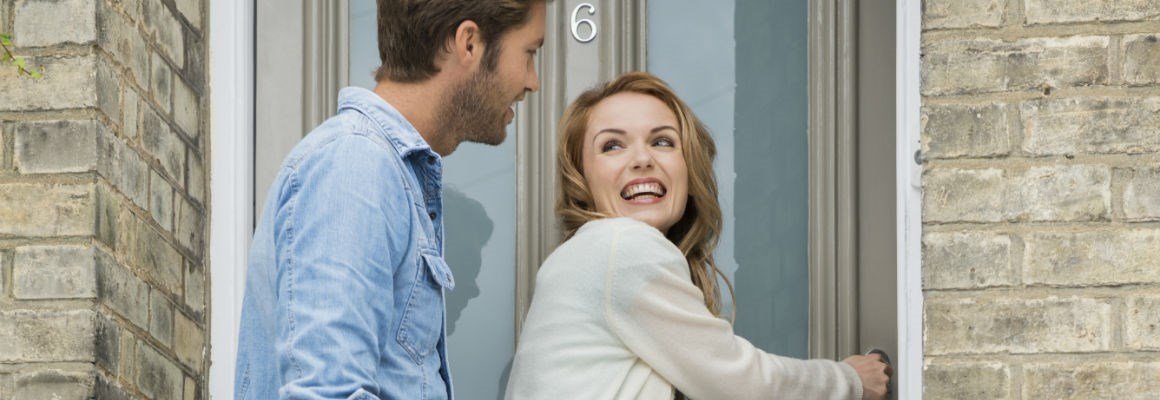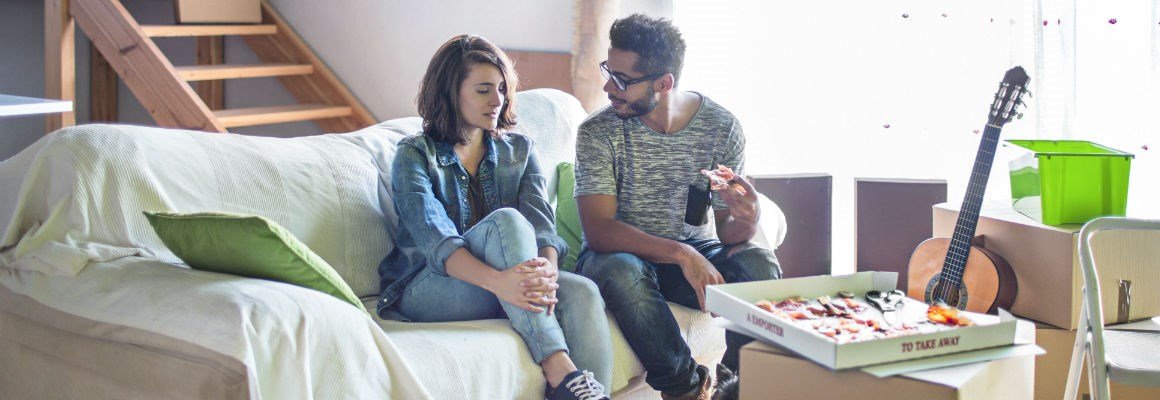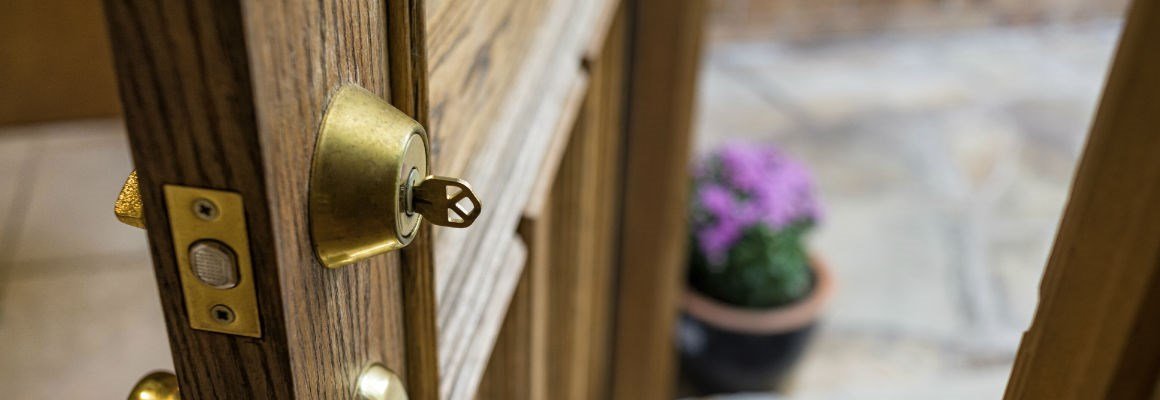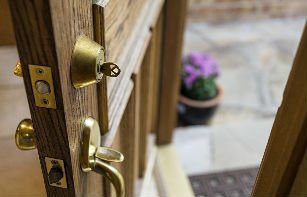Costs

How much does moving house cost?
Securing a mortgage is just part of the moving house process. Find out all the extras you’ll need to budget for, including conveyancing fees and a property survey.
How much does moving house cost?
Moving house costs an average of £12,350, once you’ve taken into consideration additional costs, such as conveyancing fees, mortgage fees and a property survey. Securing a mortgage – and saving for a deposit if you’re a first time buyer – is just part of the process when it comes to moving house.
Don’t forget to budget for all the extras:
Average cost of moving house | |
|---|---|
Valuation | £200 |
Survey | £800 |
Conveyancing fees | £1,175 |
Local authority searches | £250 |
Estate agent fees | £4,000 |
Stamp duty | £3,750 |
Mortgage fees | £1,250 |
Electronic transfer fee | £35 |
Removal costs | £800 |
Energy Performance Certificate | £90 |
Total | £12,350 |

1. Valuation of the property
Your mortgage lender will demand that the property you want to buy is assessed by a professional surveyor, who will check that it’s worth what you intend to pay for it.
The lender’s valuation is a quick survey that only takes around 30 minutes, and doesn’t go into great detail. The surveyor won’t report on any repairs that need making or structural problems – they’ll just tell you how much they think the home is worth.
The valuation fee depends on the value of the property, but expect to pay at least £150. Normally the buyer pays the valuation fee, although some mortgage companies will offer them for free.
2. Survey of the property
A survey is a more detailed look at a property which is designed to assess its overall condition and identify any problems that need fixing.
There are two main kinds of survey:
A homebuyer's report: This is a cheaper, less detailed survey that’s suitable for properties in a reasonable condition. A homebuyer’s report will cost around £400 on average, but note that this can be higher for a more expensive property. Any major structural problems should be identified, such as damp or subsidence. It can sometimes tell you how much any problems would cost to fix, which can be handy when you’re negotiating a price with the seller.
A building or structural survey: This is more thorough, and is recommended for homes that are over fifty years old, or in a poor condition. Again, the cost can vary, but expect to pay around £1,000 for a structural survey. While this is a lot of money, the survey will take an in-depth look at the structure and condition of the property, and provide costs and timings for any repair work that’s required, hopefully saving you a headache further down the line.
Ensure you find a surveyor who’s a member of a recognised trade body, such as the Royal Institution of Chartered Surveyors (RICS). This can normally be arranged via your mortgage provider.
3. Conveyancing fees
When buying a home, you must employ a solicitor, also known as a conveyancer, to deal with the legal aspects. They’ll charge you conveyancing fees, also known as solicitor fees, which can be substantial.
While some solicitors charge a flat fee, others have a sliding scale depending on the property’s value. In any case, expect to pay between £850 and £1,500.
If you’re also selling a home, you will have to pay a separate fee and agreement for the sale of your existing property.
What does the conveyancing process involve?
Your solicitor will draw up a draft contract, setting out the charges and deposits that will be required to complete the home buying process.
Then, they will contact the seller’s conveyancer to share information and request a copy of the draft contract and other details needed, such as the ownership of the property, also known as a ‘property title’.
They’ll also do a set of legal searches to ensure there are no other factors that you should be aware of. Some searches are likely to be recommended by your solicitor, and others by the mortgage lender, to protect them from any problems that the property may have. Common searches include:
- Local authority searches: To see if there is anything you need to be aware of, like building regulation issues. Your solicitor will submit searches to your local council to make and then pass the fees onto you, which will likely be around £200 to £300.
- Drainage searches: To check your new property is connected to sewers
- Environmental searches: To make sure the land isn't contaminated in any way
4. Estate agent fees
If you sell your home through a traditional estate agent, you will be charged a commission fee. This is usually around 1-3% of the total price paid by the buyer of your property, plus VAT. Online estate agents often charge a flat rate, which can work out cheaper – this is usually anything from £500 to £2,000.
5. Stamp duty
Stamp duty is a lump-sum tax that anyone buying a residential property costing more than £125,000 has to pay. The rate of stamp duty you’ll owe is based on the price of the property you’re buying:

1. Choose a mortgage provider
There are lots of different types of mortgages to choose from, and it’s a good idea to do as much research as you can about what’s on offer.
Regardless of whether you apply for a mortgage through a bank or a broker, your lender will want to be reassured that you can make repayments if interest rates rise, or if your personal circumstances change.
It’s likely that your lender will ask you for a number of documents before going ahead with the process, including:
- Proof of ID for each person applying
- Proof of current address
- Proof of income for each applicant
- Recent bank statements
- Details of the property you are planning to buy
- Estate agent details
- Solicitor details
This information helps your lender begin a process called a ‘fact find’, where they gather information about you and your financial situation.
They’re also likely to create an affordability assessment, where you’ll be asked to provide evidence of your income and spending habits. This will help them determine if you can afford the repayments each month.
At this stage, it's worth getting clued up on the different product policies, service fees and charge fees, if any.
2. Have the property valued
Before your mortgage is approved, your lender is likely to check how much your new home is worth. To do this, it will usually organise for a qualified valuer to visit the property and inspect it.
The valuation is typically paid for by the buyer, as we mentioned above, even if you don’t go on to buy the property.
During a valuation, a number of factors will be checked:
- Size of the property
- Type of property, i.e. apartment or house
- Location
- Local environment
The valuation won’t tell you about the condition of the house, but it will give you an estimation of what it is roughly worth.
3. How long does a mortgage take to be approved?
When your lender is satisfied that you’ll be able to make monthly repayments, and is pleased with the valuation report and the findings from legal searches, you’ll be given a formal mortgage offer, which is often known as an ‘offer of advance’.
If you’re happy with the offer, it’s time to accept and move onto the legal work.
4. Sign the completion papers and organise insurance
Once your solicitor receives a copy of the draft contract, they will ensure that everything is in order and that all fixtures and fittings, such as cupboards and lights included in the purchase, are what you agreed when you first made your offer.
A completion date will be made, which is usually one to four weeks following the exchange of contracts. Then, it’s time to make arrangements to transfer your deposit.
It’s worth taking a final trip to your new house before paying the deposit, to check that everything is still in shipshape condition.
What about Home Insurance?
You’re also going to need to insure your new property against fire and other threats with Buildings Insurance, which is a common requirement of your mortgage offer.
Your insurance needs to be in place on the day the exchange is done, as you legally own the property at that point.
It’s not just Buildings Insurance you need to consider, it’s Contents Insurance too, as your belongings could be damaged in transit. Most policies will only cover you if you use a professional removal company, so check with your insurer.
Our research* has shown that getting Contents Insurance is the top priority when moving home, followed closely by setting up home security. Both of these important tasks are prioritised ahead of connecting WiFi, and sussing out the neighbours.
Final steps before moving in
Once final searches have been made and a transfer deed has been signed, your solicitor will ask your mortgage provider for the full amount of money to send on to the seller’s conveyancer.
5. Exchange keys and move in
Once the sale is complete, the seller’s solicitor will confirm that they have received all money due and you’ll be able to collect your keys and plan your official move.
You’ll have 30 days for your solicitor to send the Stamp Office your transfer deed, and for you to pay stamp duty, if required.
Don’t hand over the keys until you’ve had confirmation from your solicitor that the completion has gone through.
What should I do before moving day?
By getting organised ahead of moving day, you should be able to alleviate any stress. Pack your belongings up carefully, and use the opportunity to declutter. On moving day itself, remember to take meter readings for extra peace of mind, and pack a ‘first day box’ to settle in.

Before you move: Seven top tips
1. Get organised
Don’t leave everything to the last minute! Make a list of everything you need to do, and remember to tick them off as you go.
2. Time to declutter
Moving is a great opportunity to declutter, so it’s worth spending some time sorting through your belongings and getting rid of any items you no longer use.
3. Box clever
Make life much easier for yourself by putting items from each room into the same box, and labelling them clearly with a list of contents.
Label boxes on both the tops and sides with their contents, as well as instructions on which room to put them in. Identify fragile items clearly, and include arrows for the right way up.
4. Pack away bolts and screws
When you’re dismantling furniture, gather all the screws and bolts up and pack them into a sealed, labelled bag. Then, attach the bag to the corresponding piece of furniture. You’ll save yourself loads of hassle when it comes to reassembling the furniture in your new home!
Some removal companies include dismantling and reassembling as part of their service, so check before you do something you’re already paying someone else to do.
Remember!
Now’s a great time to see if you can get a better deal by switching providers for your utilities, TV subscriptions and broadband.
5. Don’t forget the freezer
Start emptying the freezer so it’s ready to be defrosted a few days before moving, whether it’s going with you or staying behind.
6. Consider whether or not you need a removal firm
Think about how you’re going to move your possessions to your new home. If you feel that you can’t shift them on your own, a professional removal firm could be the answer.
Bear in mind this option comes at a cost, so remember to shop around for quotes, and don’t forget to check that they belong to the British Association of Removers.
If you do decide to use a removal company, make sure to check the date and time for the removal, and confirm with your solicitor when you need to be out of the house by – this is usually 1pm.
Important!
Insurers can have terms in Home Insurance policies to cover house removals, e.g. breakables (china, glass, marble etc.) – these aren’t covered for breakage/damage, unless packed by professional packers.
If you choose not to use a removal company, your contents cover will generally not be in force for full sums insured, and may be limited to contents temporarily removed – check with your insurer for peace of mind.
7. Redirect your post
Use the Royal Mail's Redirection service to make sure bills or any other important mail with your old address on still reaches you.
What to do on moving day
You’ve done all of the prep work and now the big day has finally arrived – it’s time to move house! Here are four things to think about on the day of the move:
- Turn off all the appliances you’re leaving behind.
- Do one final sweep of the house to make sure you don’t forget anything.
- Take the gas and electric meter readings at both your old and new homes. Having the correct readings should mean that you don’t pay for any power that you haven’t used.
- Pack a ‘first day box’ and make sure it’s easy to find. Think of the things you’ll need on your first day in the new place such as:
- Kettle, plus coffee/tea, milk, sugar and a teaspoon
- Toilet roll
- Plates and cutlery
- Bed linen

Who should I tell when I move house?
When moving house, there are a lot of organisations and companies you need to inform, including anything to do with money, such as your bank. About a month before your moving date, consider everyone you’ll need to tell about your change of address, including:
- Your bank, credit card company and pension service
- The DVLA
- Insurance providers
- Your employer
- Utility suppliers
- Internet, mobile and landline providers
- Subscription services
- TV Licence
- Retail stores you receive items from regularly
Does moving house affect my insurance?
While you might not think that your insurance could be affected by moving house, you could be wrong. Insurance providers take lots of different things into consideration when calculating your insurance premiums, including your address. It’s important that you contact your insurer as soon as you know you’ll be moving house.

Will moving house affect my Home Insurance?
Where you live is one of the first considerations for an insurer when costing up your Home Insurance premium. If the crime rates are higher in your new neighbourhood, the price of your Home Insurance may go up due to the higher risk of burglary.
It’s also important that you don’t underestimate the value of your home’s contents – in the midst of a house move, it can be easy to forget things when buying your insurance. Try out our Home Contents Calculator, which will help give you a better view of how much your much-loved possessions are worth.
Will moving house affect my Car Insurance?
Insurers consider many factors when calculating the cost of your Car Insurance policy, including your claims history and external influences, such as fraud.
Again, where you live is a key consideration, along with where your car is stored overnight: For example, if your car is stored safely in a locked garage overnight, it’s less likely to be at risk of theft or damage than if it was parked outside your home, which could result in a lower premium.
Depending on the situation at your new home, the cost of your Car Insurance may go up – read our article on why Car Insurance premiums can increase, and be sure to check with your insurer too.

What questions should I ask about my new home?
You’ll undoubtedly have a lot of questions about your new home. Have a think about the regular, mundane jobs you’ll need to do once you’re in your new place, such as putting the bins out, and make a list of questions to ask the previous owners before you move in.
Questions to ask sellers
There are lots of questions to consider, including:
- When are the bins collected?
- Where are the gas and electricity meters?
- Where is the fuse box?
- Where is the stopcock?
Security measures to take once you've moved in
Congrats – you’ve finally moved house! Before you crack open that bottle of fizz, you should consider that third parties might have a key to your new home, or know the alarm code. By changing these, you’re establishing a greater level of security for you and your belongings.

What you should do as soon as you’ve moved in
- Change the locks – who knows who has a key?
- Change the alarm code – after all, you don’t know who might know it
- Replace the batteries in the smoke detectors and carbon monoxide alarms – they might not have been changed for a while
- Be careful when posting about your new home on social media – our interactive map shows that people are putting themselves at risk of burglary by oversharing on social
*Based on a survey of 2,000 people in March 2019. Conducted on behalf of Swinton Insurance by OnePoll





